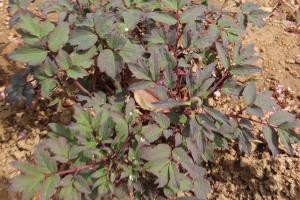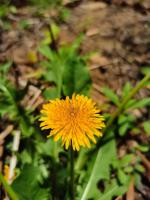Do Plants Eat Snail Poop Water?
Snails are common in most bodies of water, from ponds to aquariums. As these mollusks feed on plants and algae, they produce copious amounts of waste, which can accumulate in the water. Some aquarists and gardeners have suggested that plants can benefit from this waste, but the question remains – do plants eat snail poop water?
The Science of Snail Waste
Before we can answer this question, we need to understand what snail waste is made of, and how it affects the water chemistry. Snails excrete both solid and liquid waste, which contain nitrogen, phosphorus, and other nutrients. These compounds can be beneficial for plants, as they play a vital role in plant growth, but only if they are in the right form and concentration.
When snail poop accumulates in the water, it can decompose and release ammonia, a toxic substance that can harm fish and other aquatic creatures. If the ammonia is not quickly converted into less harmful compounds, such as nitrites and nitrates, it can lead to fish deaths and a buildup of algae. Therefore, it is crucial to maintain good water quality in aquariums and ponds, to ensure the health of all inhabitants.
The Effect of Snail Poop Water on Plants
As for plants, the answer is not straightforward. While they do need nutrients from nitrogen and phosphorus to grow, they can only absorb them if they are in a form that is soluble and available. Snail waste, however, contains mainly organic forms of these elements, which are not readily available to plants. Therefore, it is unlikely that plants can directly use snail poop water as a fertilizer.
Furthermore, if the ammonia and nitrite levels in the water are too high, it can cause root damage and leaf burn in plants, similar to what happens in fish. Therefore, using snail poop water without proper filtration and testing can harm plants, rather than help them.
Alternative Sources of Nutrients for Plants
So, if snail poop water is not a reliable source of nutrients for plants, what alternatives exist? There are several commercially available fertilizers that contain the necessary nutrients for plant growth, and they come in various forms, such as powder, liquid, or granules. These fertilizers can be added to the water or soil, depending on the type of plant and the desired effect.
Another source of nutrients is compost, which is made from decomposed organic matter, such as kitchen scraps, leaves, and grass clippings. Compost contains high levels of nitrogen, phosphorus, and potassium, as well as other micronutrients and beneficial bacteria that can improve soil health. It is an excellent natural fertilizer that can be used for all types of plants, including vegetables, herbs, flowers, and trees.
The Bottom Line
While snail poop water may sound like a convenient and cost-effective solution for plant fertilization, the reality is that it can do more harm than good. Without proper filtration and testing, it can lead to water pollution and plant damage. Therefore, it is best to use reliable sources of nutrients, such as commercial fertilizers or compost, to ensure the healthy growth of plants.

 how many times do yo...
how many times do yo... how many planted tre...
how many planted tre... how many pine trees ...
how many pine trees ... how many pecan trees...
how many pecan trees... how many plants comp...
how many plants comp... how many plants can ...
how many plants can ... how many plants and ...
how many plants and ... how many pepper plan...
how many pepper plan...





























